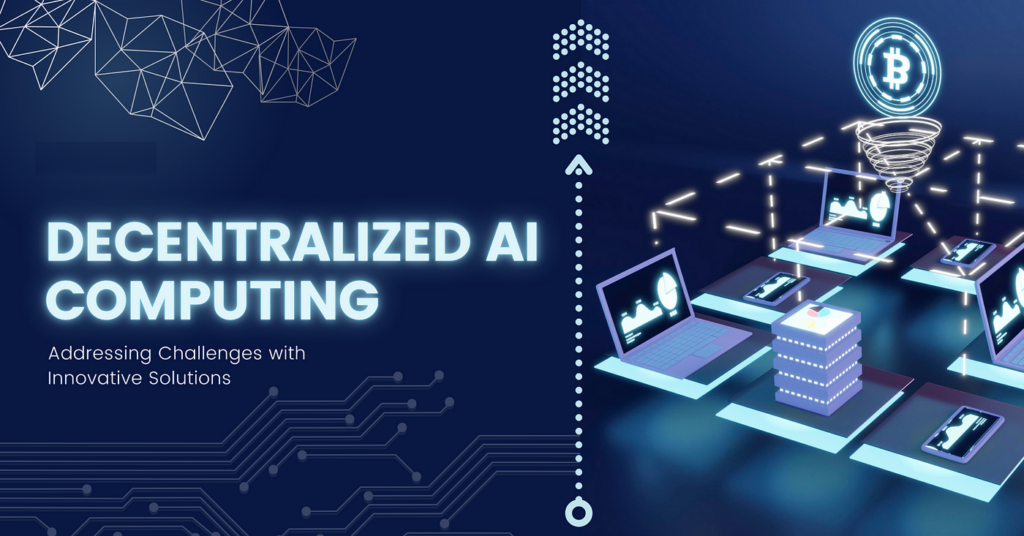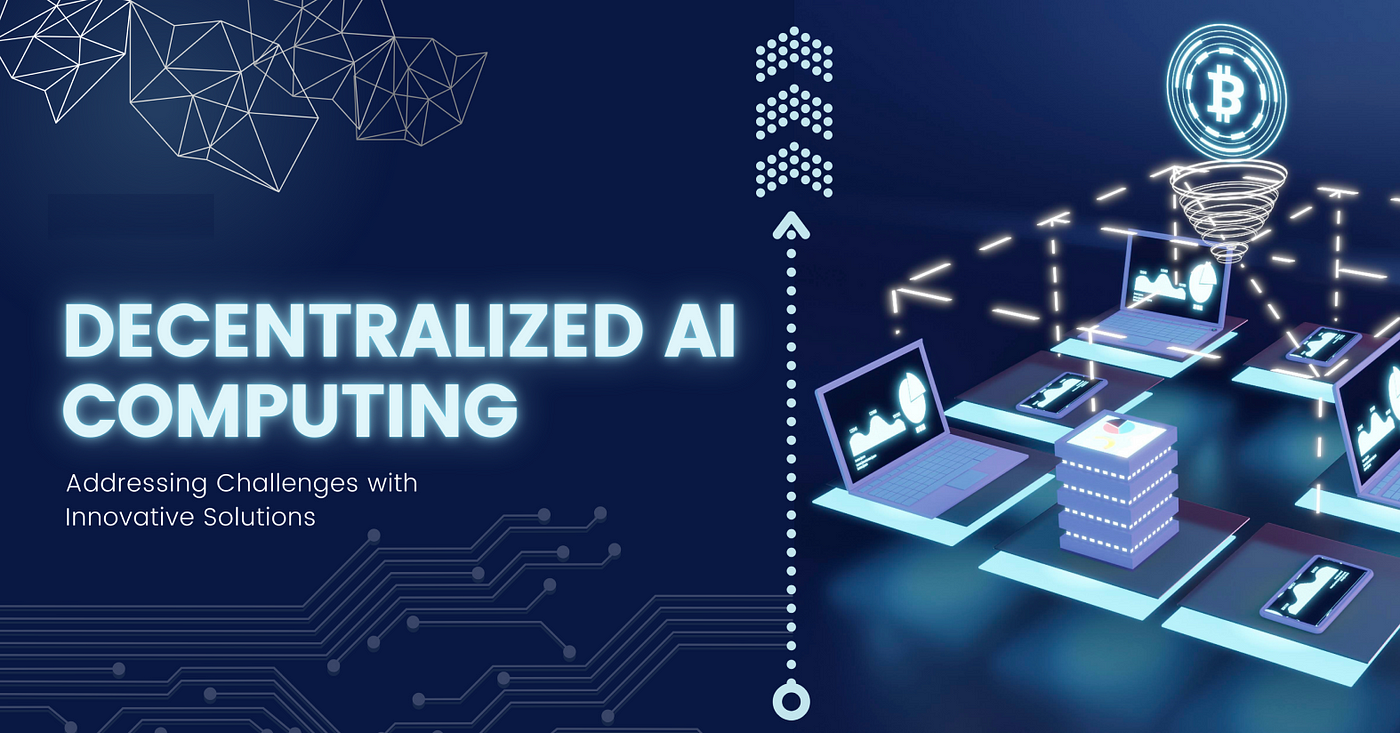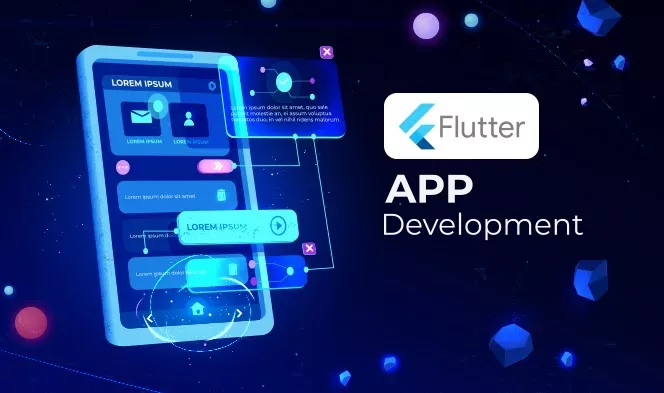Decentralization is a trend that has gained significant momentum in recent years, disrupting various industries. From blockchain technology to decentralized finance (DeFi), the concept of distributing power and control away from centralized entities has become increasingly popular. Now, the same trend is making its way into the world of artificial intelligence (AI). Decentralized AI aims to create a more equitable, transparent, and secure AI ecosystem.

Understanding Decentralized AI
Decentralized AI involves breaking down AI systems into smaller, interconnected components that are distributed across a network of computers. This approach differs from traditional centralized AI, where AI models are typically hosted on powerful servers controlled by a single entity.
In a decentralized AI system, data is collected and processed by multiple nodes on the network. This distributed data processing helps to ensure privacy and security as data is not concentrated in a single location. Additionally, decentralized AI can improve efficiency and scalability by leveraging the combined computing power of multiple devices.
Key Benefits of Decentralized AI
- Enhanced Data Privacy: By distributing data across multiple nodes, decentralized AI reduces the risk of data breaches and unauthorized access.
- Increased Transparency and Accountability: Decentralized AI systems can be more transparent and accountable than centralized ones, as the algorithms and data used are often publicly accessible.
- Improved Efficiency and Scalability: Decentralized AI can leverage the combined computing power of multiple devices, making it more efficient and scalable than traditional centralized AI.
- Greater Accessibility: Decentralized AI can make AI technology more accessible to individuals and organizations, as it does not require significant computing resources or infrastructure.
Addressing the Challenges of Decentralized AI
While decentralized AI offers many benefits, it also presents several challenges that need to be addressed:
1. Technical Complexity: Implementing decentralized AI systems can be technically complex and may require specialized expertise.
- Solution: The development of user-friendly tools and platforms can help to simplify the process of building and deploying decentralized AI applications.
- Example: Projects like Ocean Protocol and SingularityNET are developing platforms that make it easier for developers to create and deploy decentralized AI applications.
2. Interoperability: Ensuring interoperability between different decentralized AI systems can be a challenge.
- Solution: The development of standardized protocols and frameworks can help to address interoperability issues.
- Example: The Decentralized Artificial Intelligence Foundation (DAIF) is working to develop standards and guidelines for decentralized AI.
3. Governance: Establishing effective governance mechanisms for decentralized AI networks can be difficult.
- Solution: Decentralized autonomous organizations (DAOs) can be used to govern decentralized AI networks.
- Example: The Ocean Protocol uses a DAO to govern its network and make decisions about its development and direction.
4. Scalability: Decentralized AI systems can become less efficient as the number of nodes in the network increases.
- Solution: The development of scalable consensus algorithms and sharding techniques can help to address scalability challenges.
- Example: Blockchain technologies like Ethereum and Solana have developed scalable solutions that can be applied to decentralized AI systems.
5. Security: Decentralized AI systems are susceptible to various security threats, such as Sybil attacks and malicious nodes.
- Solution: The use of cryptographic techniques and consensus algorithms can help to protect decentralized AI systems from security threats.
- Example: Blockchain technologies like Bitcoin and Ethereum use cryptographic techniques to secure their networks.
The Future of Decentralized AI
Decentralized AI has the potential to revolutionize various industries and shape the future of technology. By addressing the challenges and leveraging the benefits of decentralized AI, we can create a more equitable, transparent, and secure AI ecosystem.
Conclusion
Decentralized AI is a promising technology with the potential to transform the way we use and interact with AI. By addressing the challenges and leveraging the benefits of decentralized AI, we can create a more equitable, transparent, and secure AI ecosystem. As this technology continues to evolve, it is likely to have a significant impact on various industries and shape the future of AI.



Leave a Reply